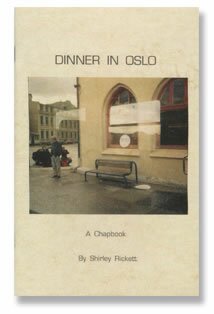
Notes on Dinner in Oslo
I learned about World War II, Hitler, and The Third Reich from living through it on the Homefront. I read everything I could get my hands after I overheard my dad say that he would kill his family and himself before he would subject us to the Nazis if they invaded our country. I was 9 or 10 years old.
All came to the surface with the liberation of the camps, the Nuremberg trials, and years later, accounts of survivors. It was then that a question arose in my mind: How can human beings treat other human beings with such utter cruelty? Separation of families, ruthless “medical” experiments, starvation, gassing, burning bodies, torture. Over six million people.
I kept reading magazine pieces, newspapers, and books about the Holocaust. I became a student of that time and still am.
As an adult I read Holocaust survivor accounts, William Heyen’s works, Elie Weisel, Paul Celan, and many others. I stumbled on a biography about Hermann Goering. He was Hitler’s right-hand man and leader of the Wehrmacht, the German armed forces and the author of firebombing that began over England known as the “Blitz.”
Reading about Goering and his family set me to wonder about the children of these men. Where were they? What were they doing? How did they live and live down what their fathers had done? Or did they want to?
In graduate school at UMKC (University of Missouri—Kansas City), I applied for a sponsorship with a project to go to Germany and Norway to meet with a support group of “Nazi Children,” what the Norwegian state had called them.
I had met Ole Wilhelm Klüwer on his website and we corresponded for nearly two years. His father was forced to put on the uniform when the Nazis invaded Norway. The country capitulated in three weeks. I will forever be grateful to him for his help and hospitality, and the help of a good friend, Beatrice Karbaumer for making our trip possible to meet with some of Ole’s group. My proposal was accepted. The award helped to finance the trip. The product I would produce for the award? A book of poems on the subject, children of Nazis.
To tally up the time it took from its inception through research, interviews, and to write and publish Dinner in Oslo totals eight years. Unless you would begin from December 7, 1941.
Dinner in Oslo is a chapbook, a term that comes from Old English: cheap (noun) plus man (noun), from the O.E.D., sixth edition. In other words, a street peddler, one who peddles small booklets of tales, ballads, tracts, fiction, and poems.
author of One Hundred Years: Poems About the Holocaust
author of Broken Time
